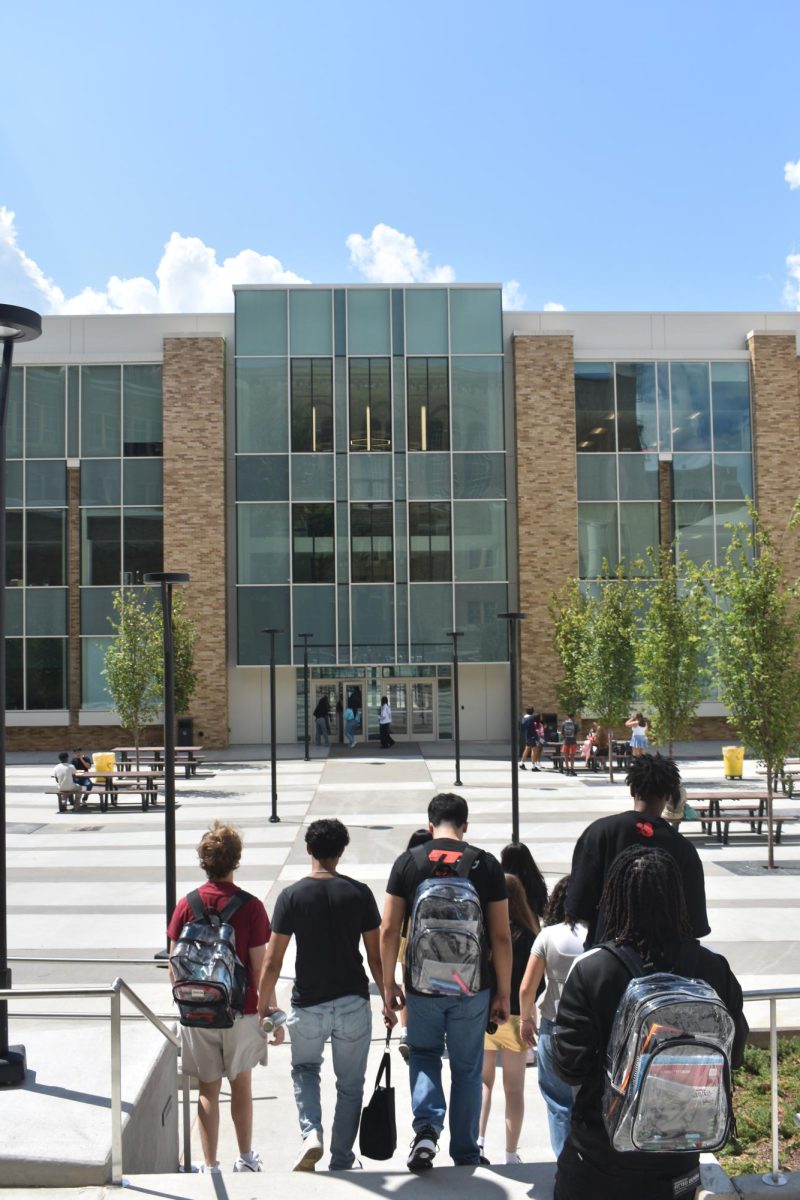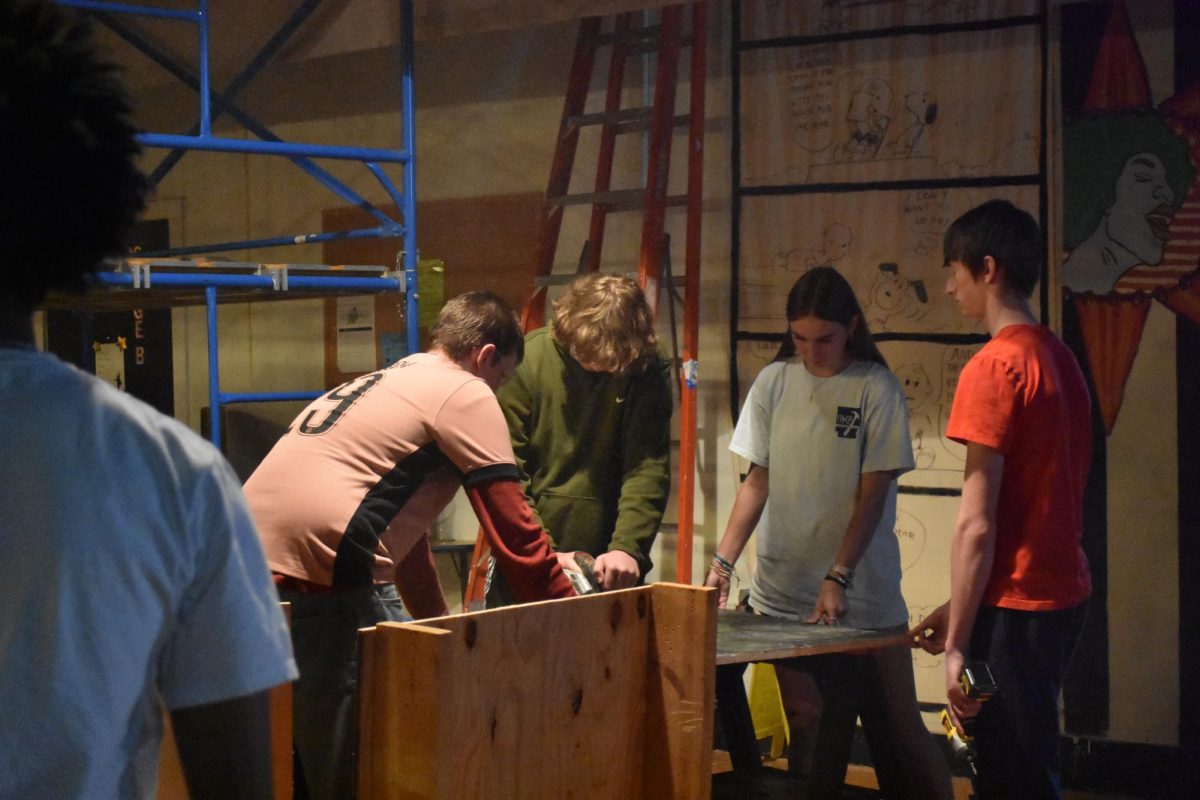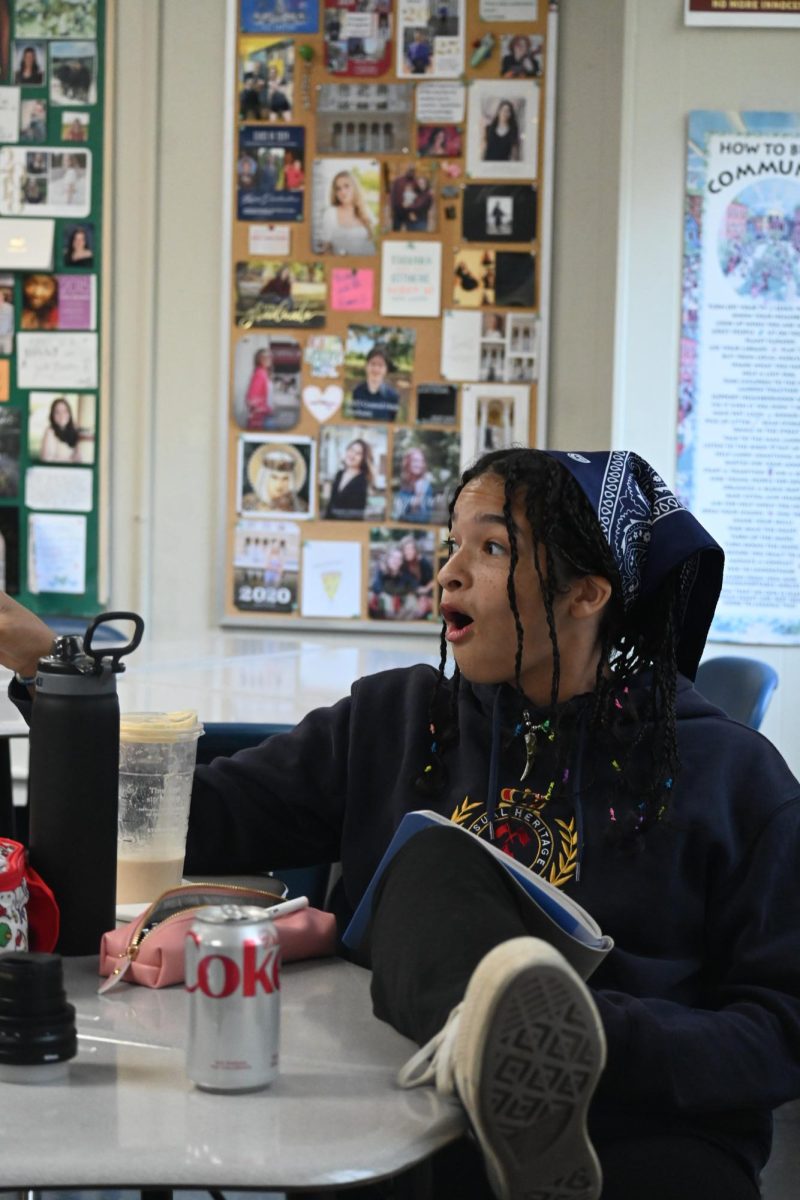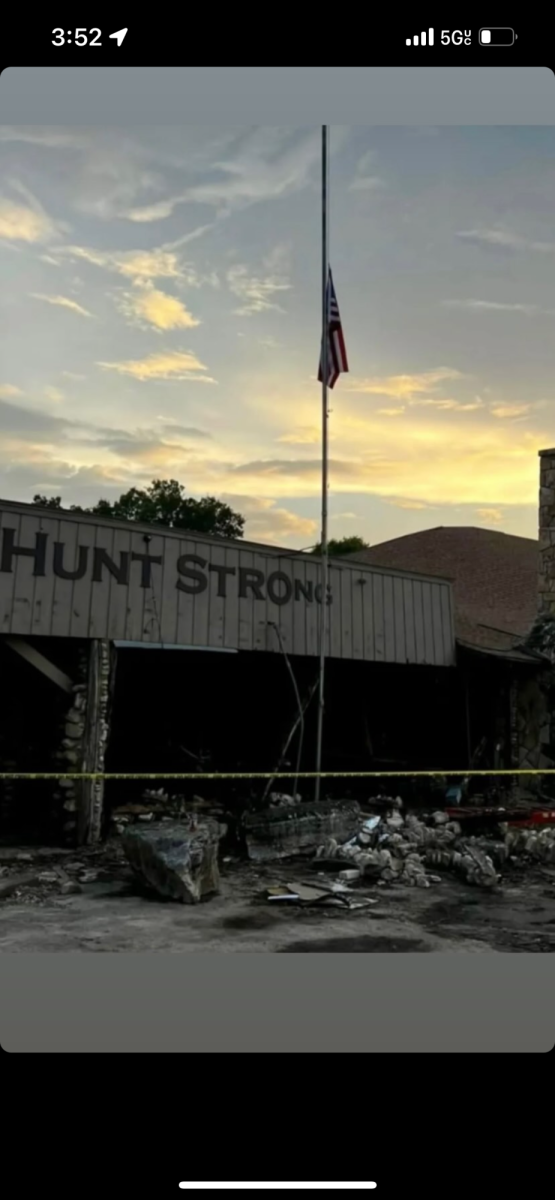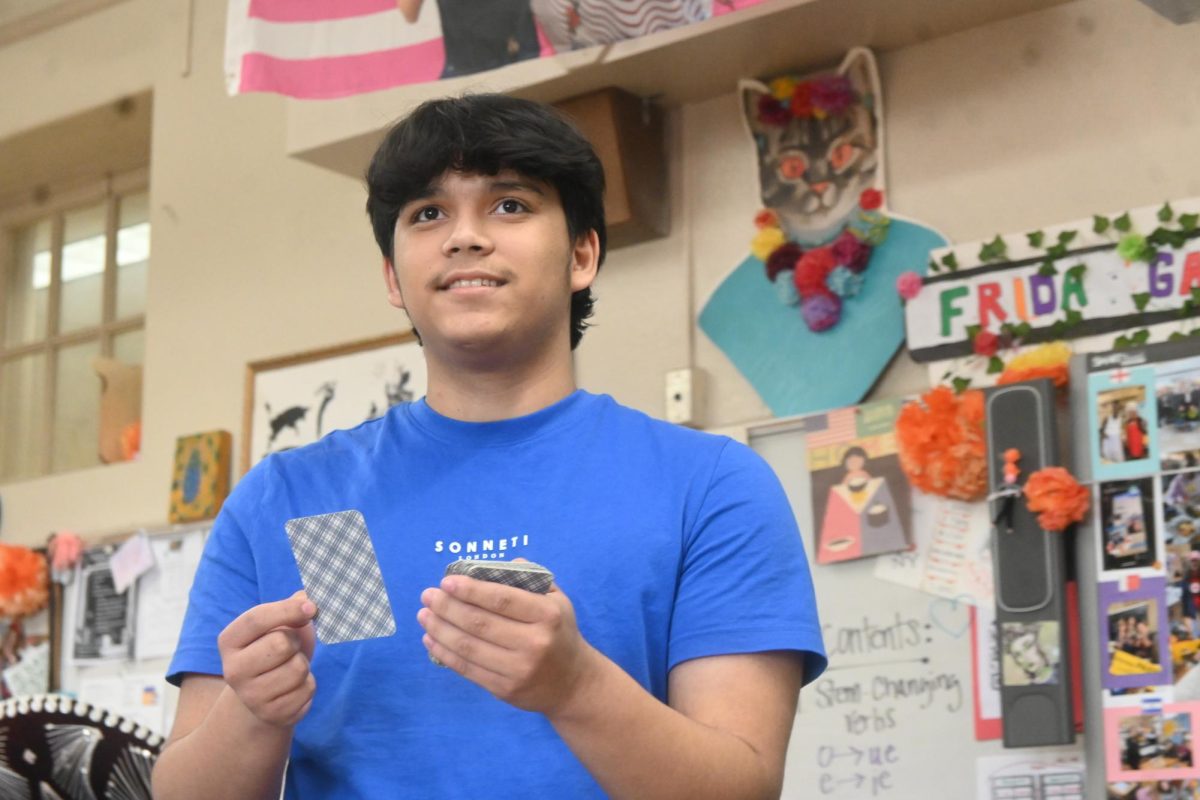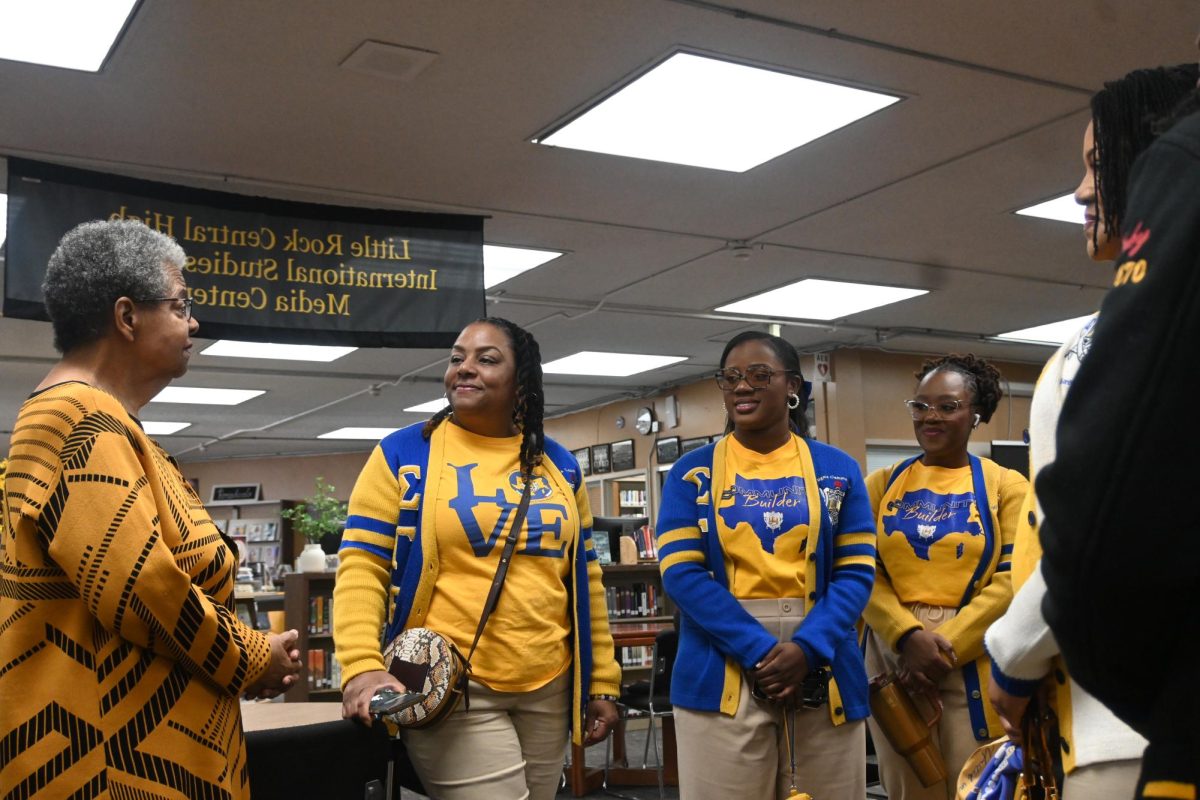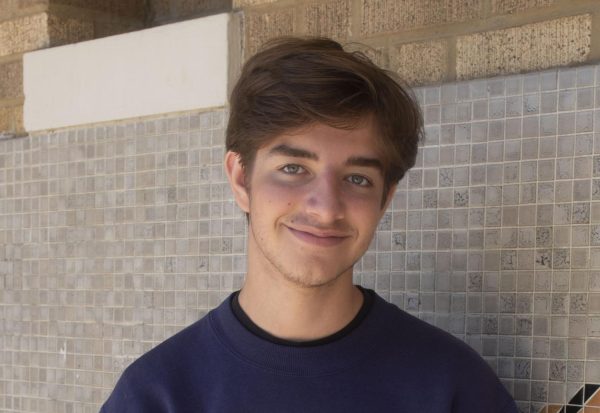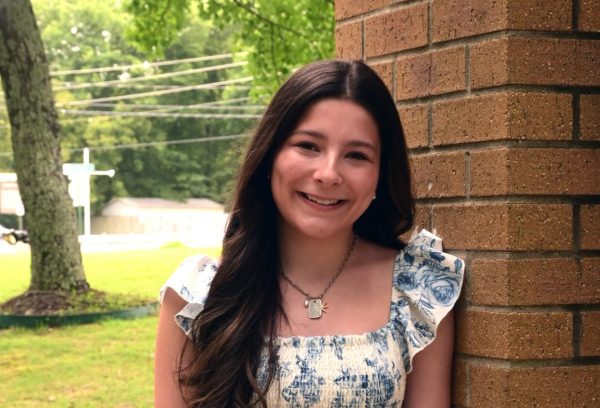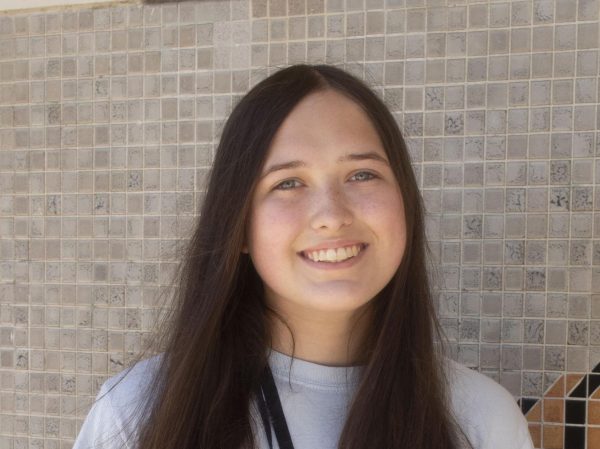- After spending 11 and a half years as a pastor, Bruno Rush became a Spanish teacher in the Little Rock School District. Then, he decided to pursue a Master of Social Work.
- Now as an intern in the Wellness Center, Rush advises any student who may be struggling to seek help.
- Faith plays a significant role in his desire to serve others
-
Daily outfit, while unique, has no impact on his role at school
Early Career
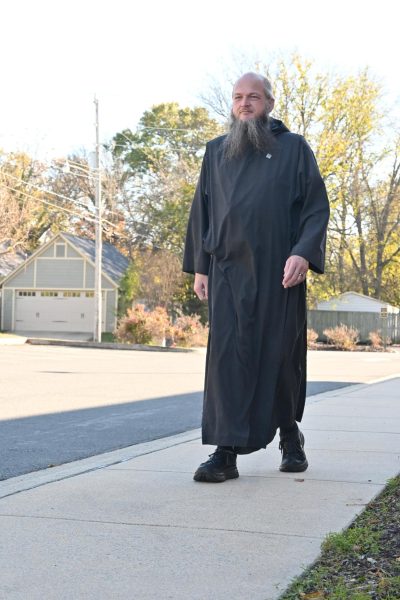
(Meredith Lipsey)
In bustling hallways, where students of all backgrounds hurriedly navigate the pressing challenges of high school, one figure
stands out. Wearing a distinct black robe, the newest intern on campus, a monk turned social work trainee, is already making a profound impact on the student body. It all began when Bruno Rush considered a significant career change after spending 11 and a half years as a professional pastor.
“I asked myself, ‘What should I do now, and what do I really enjoy?’ And I realized that a major part of being a pastor is teaching,” Rush said. “Then, I decided I would try my hand at teaching full time, so I was a Spanish teacher for a while.”
Rush taught for six years, including for three years at Little Rock Southwest High School. While teaching afforded him an opportunity to connect with students, he longed for a platform to provide more personalized guidance and support.
“I always knew teaching was going to be a middle step, until I figured out what I really want to do when I grow up,” said Rush. “One of the things I loved about being a teacher was being able to lend a helping hand to kids going through challenges. And you can teach Spanish all day long and conjugate verbs until your eyes bleed, but that kind of special connection was, to me, the job’s most valuable element.”
Entering Social Work
It wasn’t until an enlightening conversation with his own therapist that Rush considered a career in social work.
And she replied, ‘Go get a Master of Social Work,’ so while I was teaching, I started working on classes for that degree. I’m now in the last year of that program, which is why I’m here to perform a year-long internship,” said Rush. “I originally applied to work within the Little Rock School District since I already was in the public school system, and I’ve really felt at home. I even taught briefly at Central seven years ago as a long term substitute for an English teacher, so I’m very familiar with this place. It was a dream assignment for me, and this is really the happiest I’ve ever been doing this kind of work.”
Rush’s favorite memory from his internship thus far is homecoming spirit week, a time when students embrace the chance to have fun and be themselves. It’s an embodiment of his own belief that, amid the pressures of growing up, it’s essential to take a step back and enjoy being a kid. Meanwhile, Rush says the essence of his role as an intern is to empower students.
“We all have those moments when something’s really bothering you. To be clear, I can’t fix anybody’s problems,” Rush said. “And no one in this profession fixes problems, but what social workers can do is show people the tools that they already have inside themselves and allow them to develop these important coping mechanisms. And when you hit a bump in the road and everything feels overwhelming, it’s always good to get somebody that’s been trained and who can sit with you through that crisis while you find your own way out.
Open to All
Rush advises any and all students who may be struggling to seek help.
“It’s always better to check in if you feel like you might benefit from a conversation,” Rush said. “Along with every opportunity in life, the worst anybody can ever tell you is no. If you want to do something or feel like you need support, give it a shot.”
The monk’s Methodist faith plays a significant role in his personal desire to serve others. Rooted in his belief that everyone should live their fullest life, Rush emphasizes that his purpose is universal, irrespective of one’s religious beliefs or lack thereof. His stated mission is about fostering well-being and happiness for all, and his religious identity is just one way to express that desire.
“My faith is all about helping people live their fullest life, and I think that’s pretty much most people’s idea of service. No matter what it looks like or whose name it bears, every belief usually boils down to a single mission,” Rush said. “And that’s why my particular religious identity doesn’t play any role for me at school. Because you can reach the same kind of goals, socially or in terms of mental health and well being, regardless of whether you practice any religion or no religion at all. In that way, there’s nothing unique or particular about my religiosity that makes me more equipped to perform these duties. That’s just my way of carrying myself in the world.”
Sticking out
Nonetheless, the way Rush carries himself in the world is undeniably unique. His appearance is notably defined by a distinctive black habit (the technical term for a monk’s robe). Traditionally, the intern’s daily attire represents humility.
“If you’re part of a group of monks and wearing this outfit, then you’re not trying to dress better than somebody, you’re not trying to show off your fancy clothes, you’re not trying to show off your physique, and you’re not trying to impress anyone else,” Rush said. “Of course, though, since there’s only one person walking around like this, I stick out.”
Rush explains that his outfit has no impact on his role at school, and his religious perspective has never impacted his counseling.
“It’s kind of like a wedding ring. When somebody wears a wedding ring to work, it signifies their role as a husband or wife, but they’re not there solely in that capacity. Similarly, I wear this habit not to define my role as a monk during work but because it’s what I choose to wear all the time, whether it’s an everyday trip to Walmart or at a family event,” said Rush. “It’s just a part of who I am. So, it doesn’t really define my presence, and I’m certainly not here to proclaim a specific identity.”
By students, Rush has been labeled a wizard, a Jedi, and even the Grim Reaper because of his fashion choices, but in the end, he hopes his presence at school will help the community recognize the important resources which are available to those in need.
Correction: A version of this story in our print issue incorrectly stated that Rush is a Methodist monk. He is not. Rush describes himself as an Ecumenical Catholic.



